The genre of psychological thrillers holds a lot of promise. You know that the plot will be exciting, you know that you can’t trust anyone, especially the protagonist. You are always on the lookout for foreboding and signs that might become important later. It becomes the most effective form of a thriller because you have to guess what’s wrong here. All in all, it is a very indulging experience and the more exhausted you feel by the end, the better film it is. ‘Jacob’s Ladder’ is one such piece of work. With a great twist at its end, it covers a good number of themes and chalks up a story whose importance is decided by your own perspective. This movie has become a cult favourite among horror lovers and if you haven’t yet seen it, then you are in for some big spoilers ahead. I suggest you stop right here.
Summary of the Plot
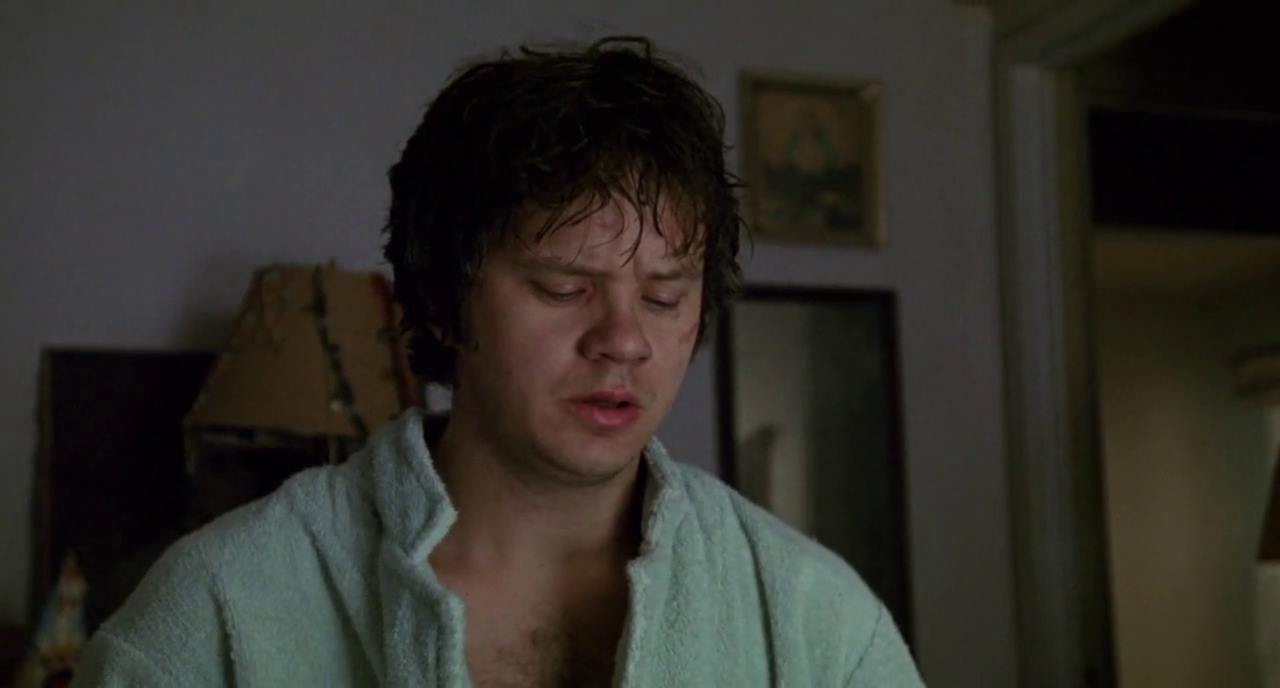
The film starts in the jungles of Vietnam. A group of soldiers sit and rest and make fun of each other. Suddenly, some of them begin to have seizures while they face attack from the enemy. Sounds of bullets and bombs take over, and Jacob (Tim Robbins) runs away, only to face someone who stabs him. In the next scene, he opens his eyes and finds himself on a mostly empty train. He gets off at a deserted station and unable to find a way out, decides to cross over the rails. Before he can safely get on the other side, the train arrives and he barely saves himself.
As the train rides away, he sees the disfigured faces of the passengers. It has been 4-5 years since he returned from Vietnam. In the course of that time, he got divorced; his wife, Sarah (Patricia Kalember) got custody of both their kids and now, he lives with Jezzie (Elizabeth Peña), his new girlfriend. He seems haunted by his experiences in the war. His son, Gabe (Macaulay Culkin), had died before his time in Vietnam, and his loss still pains Jacob intensely. Also, he suffers from back pains and frequently visits his chiropractor, Louie (Danny Aiello), who seems very insightful and gives him good advice.
But none of these physical and emotional distresses is the problem for our protagonist. The problem is that he thinks he is losing his mind. He begins to see faceless people who, he thinks, are out to get him. His visions become more pronounced by the day and they turn into full-fledged demons. He begins to wonder what’s wrong with him, and then, one of his army buddies, Paul (Pruitt Taylor Vince) tells him that he is “going to hell”. He, too, has been seeing things which convinces Jacob that something was done to them while they were in the army. After Paul dies in a car blast, he meets up with the rest of the platoon members and discovers that almost every one of them has been having the same experience. They decide to sue the army, demanding an explanation more than reparations, for their condition. But the next day, all his friends retract their statements. Meanwhile, Jacob’s condition worsens and he feels like he is in a literal hell.
The Ladder

People start seeing weird things around them in two situations — either they are going mad or they are on drugs. For Jacob, it feels like the worst case of PTSD. We know that he has seen some bad times and perhaps they are manifesting in front of him in the form of demons. Later, it is revealed that it is actually the drugs that were administered to him and other men, while they were in Vietnam. The foreshadowing of this revelation comes in one of the earliest scenes in the film. The train that Jacob wakes up on only has the ads for drugs. Even the station that he gets off at has Ecstasy and other drugs decorating its walls.
After going through all sorts of torture and beginning to question the nature of his reality, Jacob is approached by a man named Michael Newman (Matt Craven). He confirms to Jacob that the Army did do something bad to him and his platoon. But they were not the only ones. Turns out, a great number of other soldiers had died because of it. Michael tells his story to Jacob and how he got involved with the army. Michael used to make and sell LSD. But then, he was caught and sent to jail. Not 13 hours later, he was taken from his cell and the Army offered him to work for them in Vietnam. His task was to isolate the properties of certain hallucinatory compounds and make a new chemical that would help them turn the soldiers into fiercer and more ruthless killers. Jacob’s platoon and a couple of others were given this substance and this is the reason why all these bad things have been happening to them. In fact, the worse had happened in Vietnam.
Michael called the drug The Ladder. It was supposed to take the soldiers right down to their basest instincts. It was supposed to access the deepest part of their psyche and would ultimately bring out the most violent sides in them. This is exactly what Ladder did, and more. The aim of this drug was to make soldiers attack the enemy without fearing the consequences. However, once they were in their darkest form, they forgot who the enemy was and began to tear at each other. The people who attacked Jacob’s platoon was some other platoon. Blinded by rage and violence, they attacked each other and almost everyone died that day. Jacob was one of the very few who made it out, and anyone who began to talk about it was taken out by the Army because the government didn’t want their secret outed.
The Ending
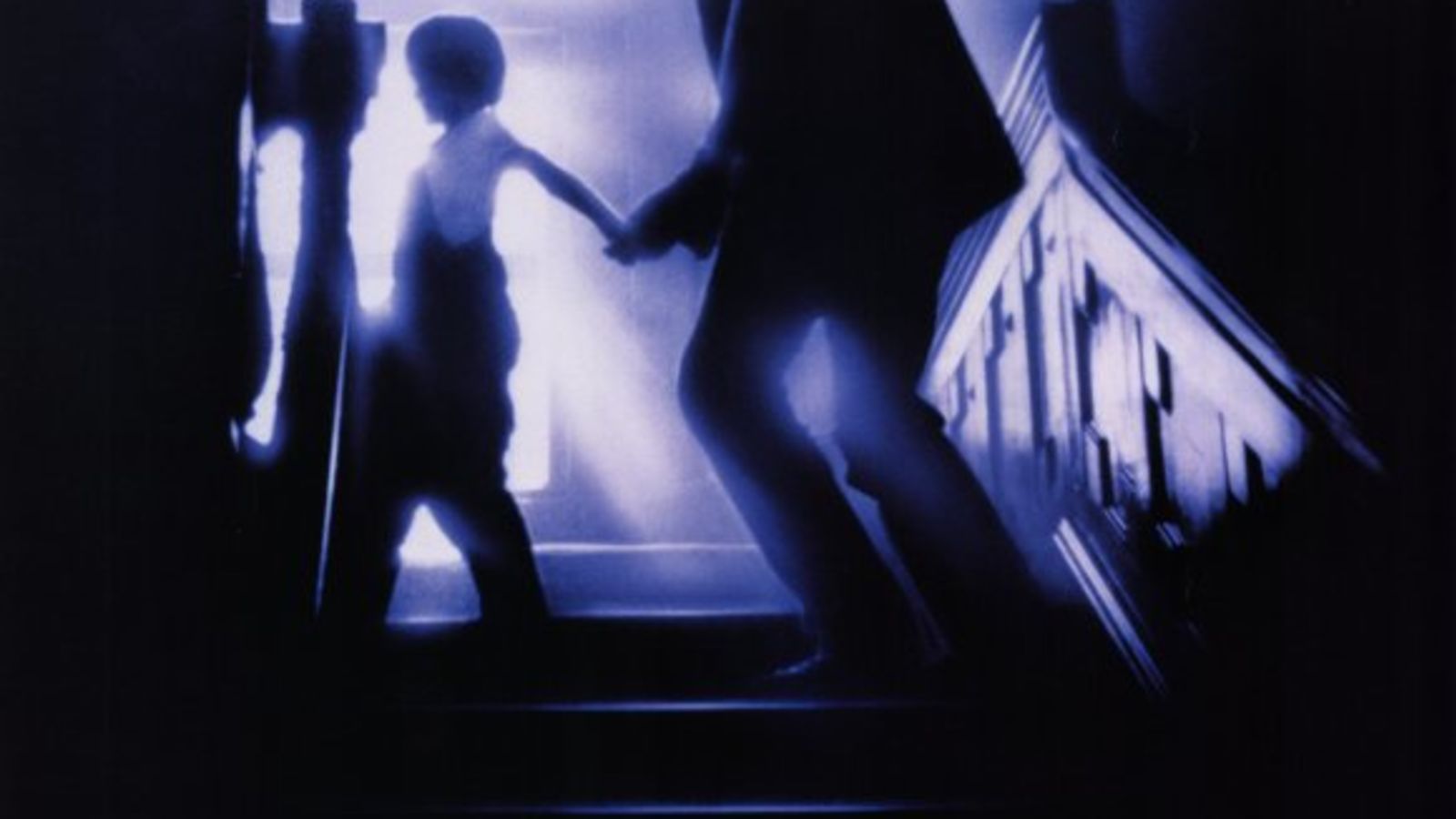
After learning the truth about what was done to him, Jacob returns home; his real home, not the one with Jezzie. There he sees Gabe, his dead son, sitting at the end of the stairs and after embracing him, he holds his hand and they both walk up the stairs. In the next scene, we find Jacob back in Vietnam, lying on the table with the doctors surrounding him. A few seconds later, they declare him dead and notice the expression of peace on his face — this changes everything we thought was happening in the film. If Jacob had died in Vietnam, what was with his life back home? What about Jezzie and his new job and basically the entire film we had been watching.
The thing is that Jacob never made it out of the war. All that we saw was going on inside his head. They were hallucinations, a trip he needed to take in order to move on. If you’re confused, then here’s how it happened: Jacob Singer lived with his wife Sarah and their three kids. One of them dies in an accident. After that, and maybe because of that, Jacob enlists in the Army and is sent away to Vietnam. There, they are experimented on and the platoons turn against each other, leading to Jacob being stabbed by one of their own. When everything is done and over with, the Army comes in search of survivors. They don’t find many, but Jacob is holding on to dear life. They take him back to the base through a helicopter. But they don’t succeed in patching him up and eventually, he dies. All the flashbacks on the war that we saw in the film are the actual chain of events. Only that portion was a reality, rest everything was a hallucination.
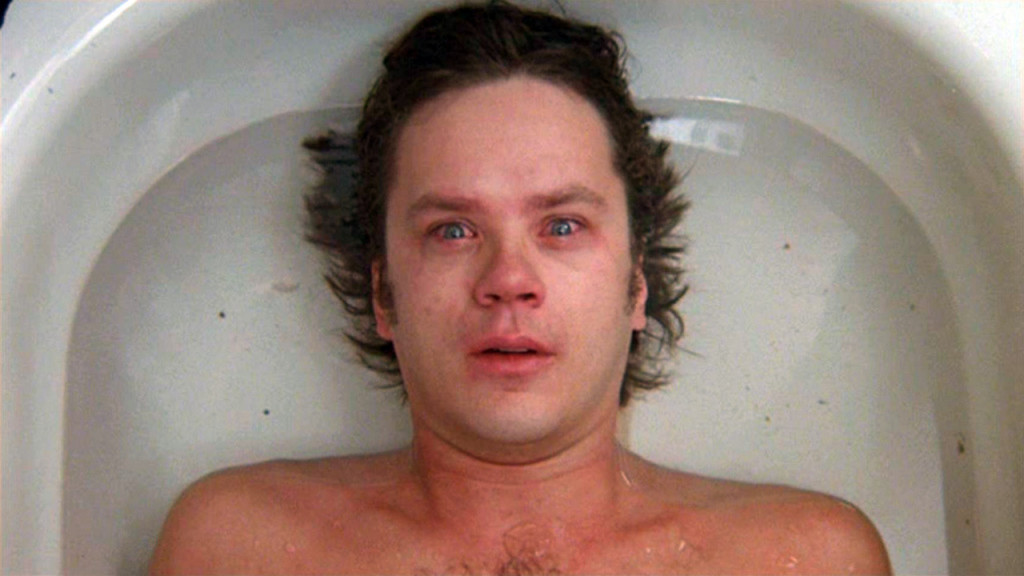
In one of the scenes, where Jacob catches 106 degrees fever and they shove him in the cold bath, he dreams about his wife and kids. That part was the memory. He wasn’t hallucinating it; he was remembering it. So, that means that less than one-fourth of the film is what was real. What about the rest of the film? What about Jezzie, and the chiropractor, Michael, Jacob’s friends and the men who try to kill him? How was he hallucinating four years into the future? The answer is that Jacob was in the middle of a near-death experience. Everything around him represented something. He had to find a way out of this place. He either had to fight on or let it go; make peace with your demons and move on.
Untimely death means unresolved issues. For Jacob, that was Gabe’s death. He still hadn’t moved on from that tragedy, which is very understandable. All the time that he spent in his hallucination was to let go of his pain and sorrow, which is what happened in the end. The shock of being stabbed had made him forget who attacked him and why it happened to them. By the end, he succeeds in figuring that out and with that done, he finds Gabe waiting for him.
Instead of being startled about how he could see his dead son alive and well as if nothing had happened to him, he goes ahead and hugs him. This indicates that with the revelation of the Ladder, he has figured out that he is in his deathbed and is ready to let go. He climbs that staircase and meets his death. In fact, if you come to think of it, throughout the movie, we see him trying to make his way up to a staircase. He tries to get out of the subway, but the exit is blocked. In the party, he is going up a staircase when he is stopped by a woman who invites him to have his hand read. We see him going around, taking elevators and even walking down the stairs, but the only time we actually see him walking up is at the end of the film.
The fact that he is dead also comes up time and again. The woman reads his hand and tells him that according to his lifeline, he is already dead. The reference also comes up a couple of more times, including in the hospital where they drill into his forehead. Even Louie quotes Eckhart, which describes hell and what it actually means. All the things around Jacob are nothing more than a means to make him accept his condition and decide what he wants to do from here.
Jacob’s Own Personal Hell

One way to consider everything is that it is inside Jacob’s head and he is making it all up by himself. Death does strange things to people, perhaps his experience is one of those too. However, there is another explanation that gives a more concrete ground to his situation. It will be easier to accept if you believe in the idea of heaven and hell. Because he isn’t technically dead, yet it is hard to say whether he is in a good place or a bad one. Let’s settle on the fact that he is somewhere in the middle. Purgatory, is it? Anyway, this is the place where the angels are free to guide him and the demons are free to torment him. Every single person around Jacob is one of those things.
To give more support to my argument, I must mention the many biblical references in the film. The title ‘Jacob’s Ladder’ is a direct reference to Jacob’s dream in the Bible. In it, he dreamed of a ladder that gave way between heaven and earth, and God talked to Jacob while angels went up and down the ladder. The ladder represents a way to heaven, a means to embrace your end, and this is what Jacob, of the film, needs to do.
Apart from his name, the names of his sons, his wife and girlfriend and even his chiropractor are direct references to the character in Bible Jacob’s story. Jezebel, aka Jezzie, according to the Hebrew Bible, made her husband, the King of Israel, abandon his gods and worship others. This is referenced in one of the lines where Jezebel says that he “sold his soul… for a good lay…”. Lus (close to Louis) was the name of the angel who helped Bible Jacob climb up the ladder. Just like Jacob’s chiropractor, who only has good and motivating things to say to him. On a number of occasions, Jacob is saved by Michael, who ultimately tells him about the Ladder. After he is saved from the burning fever, the doctor says that he “must have friends in high places.” Higher than archangel Michael?
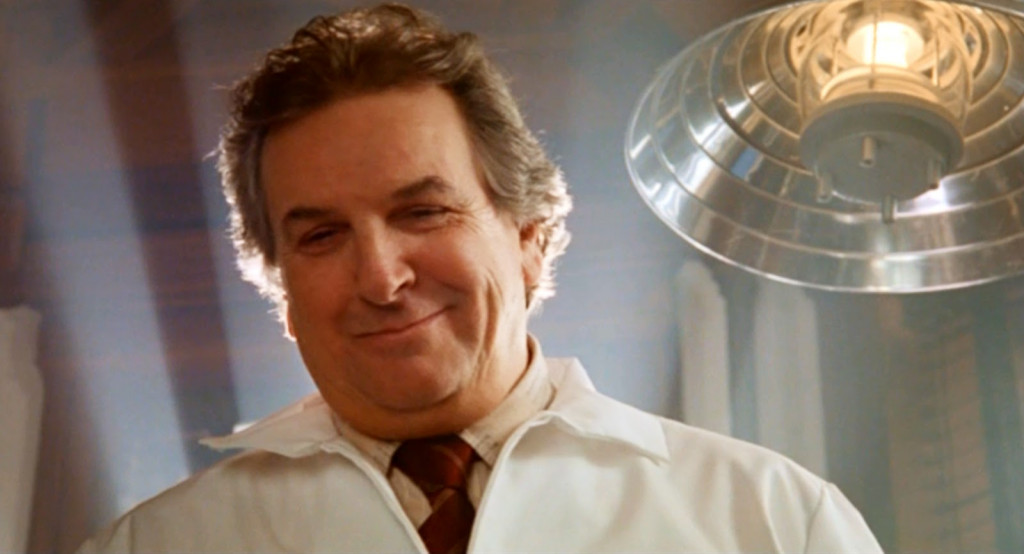
The fact that Jacob is caught up in the tussle between angels and demons is evident by the thing that his time with the angels gives him clarity. They save him and ultimately help him move on. Michael and Louis save his life, while the others are just trying to torture him in their own ways. He is with Jezzie because his wife has left him and he can’t see his children now. For a man who loves his family, this is hell. He doesn’t want to go to a party, but he does because of Jezzie. (Introverts understand this kind of hell!) After that, he has a fever and they throw buckets of ice on him. They don’t stop even when he cries out in pain. “You’re killing me”, he says; he was “burning from ice”. Then there is the hospital scene where it is all about torture. All the demons want to get their hands on him because they want to torture him. He is either saved by the angels or the memory of his family.
In one of the deleted scenes, Michael further helps Jacob by giving him an antidote which purges him of all the effects of the Ladder and he is free of his hallucinations. When he goes back home, he meets a confrontation with Jezzie where he realises that she is one of the demons. In a scary sequence, she begins to change into her true form. But when it is over, Jacob finds himself staring at himself. This is when he realises that he has been creating his own hell and he needs to move on.
The Remake
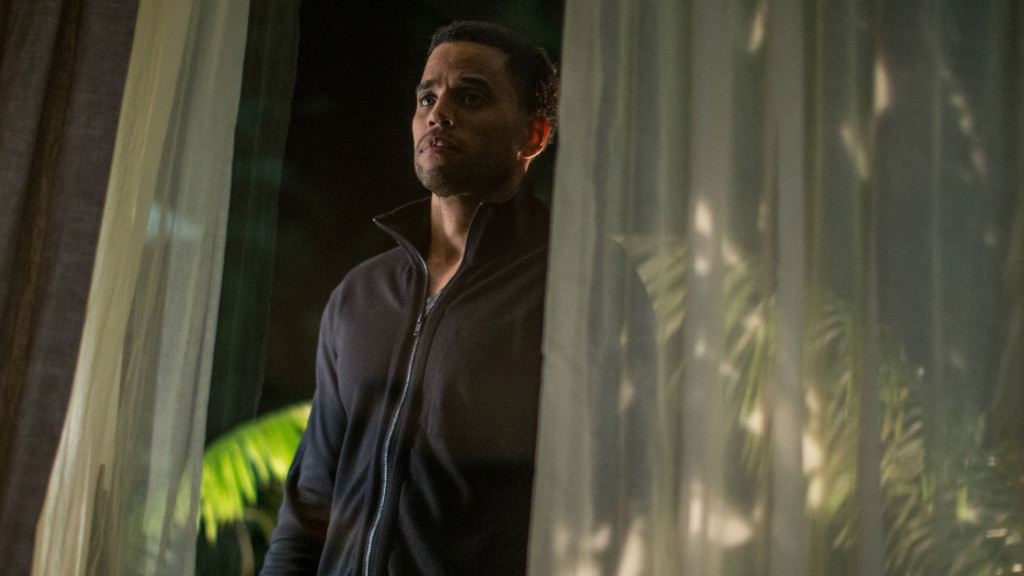
‘Jacob’s Ladder’ might not have been the first film to merge religion with the genre of psychological thriller, but it is certainly one of the most impactful films to do that. Its concept has inspired a good number of horror films over the years, most notable of them being the ‘Silent Hill’ franchise. From ‘The Twilight Zone’ to Ryan Murphy’s television horror series, ‘American Horror Story’, Adrian Lyne’s work has continued to influence the way people view scary stories.
Further, there are films that might not officially accept it, but they clearly have some crucial similarities with its plot. Take for instance the best film of M. Night Shyamalan’s career, ‘The Sixth Sense’. The protagonists of both the films turn out to be dead at the end and need to make peace with their condition before moving on. The point is that this film emphasized on the importance of questioning the point of view of the protagonist. It might not have tasted a lot of success after its release, but it has slowly gained a reputation and an acknowledgement that it has deserved for so long.
Considering the increased interest of the audience for psychological thrillers, it seems like a good time to bring this story back. A remake of ‘Jacob’s Ladder’ is in works, helmed by director David M. Rosenthal, who has taken a break from making romantic comedies. Obviously, the remake won’t have the same ending and the plot has been altered considerably. But you can still expect a big twist at the end. You just might see it coming if you pay close attention. It stars Michael Ealy and Jesse Williams in the lead roles. Ealy plays the protagonist, Jacob Singer. He has only recently returned after serving in Afghanistan. Apart from the occupational hazard of PTSD, he is also struggling to come to terms with the death of his brother who died in combat. When Jacob returns home, he finds out that his brother is alive and well. All hell breaks loose as all that he thought was real comes crashing down on him.
The synopsis does sound interesting, and keeping in line with its predecessor, the remake has enforced the army effect in its story as well. How much of religious references we will encounter in it won’t be revealed until the film releases later this year. By the time, go over the 1990’s horror classic once more and wonder whether you have made peace with your demons. How strong is the ground beneath your reality?
Read More in Explainers: Total Recall | Reservoir Dogs | Dogtooth

You must be logged in to post a comment.